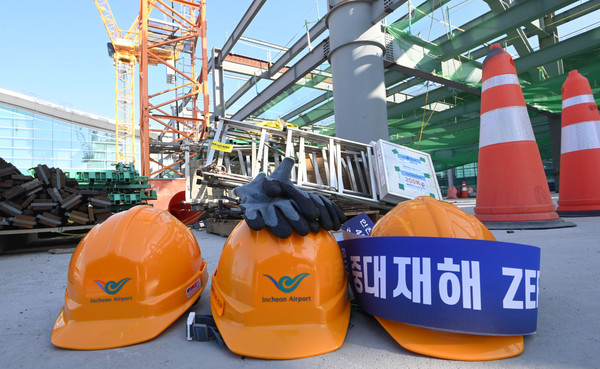
Enforcement of the Serious Accidents Punishment Act and Confusion in the Industry1)
On January 11, a building collapse occurred at Hwajeong I-Park in Gwangju, and six workers in charge of the construction were left missing. On the 24th, a detailed search of the upper level to find the missing began in earnest, and the seriousness of the dangerous reality of industrial sites became more pronounced in the wake of this incident. As the level of punishment under the existing Occupational Safety and Health Act is low, the government says that there are businesses that do not comply with various safety and health matters stipulated by the law, and that various industrial accidents continue. Accordingly, the government promulgated the Serious Accidents Punishment Act (SAPA) to ensure that business owners and upper management bear direct criminal responsibility. The SAPA is a bill that strengthens criminal punishment for employers in the event of serious accidents resulting in death while working. It passed the plenary session of the National Assembly on January 8, 2021, and the bill came into effect on January 27, 2022. It imposes a risk prevention obligation on employers and upper management and stipulates the level of punishment they will be subject to when death or serious accidents occur in violation of their obligations. While the previous Occupational Safety and Health Act made corporations subject to mandatory compliance, the SAPA differs in that business owners are also held legally responsible separately from corporations. However, even though the government statement of the law has been released, ambiguous regulations are raising confusion and concerns in industrial sites.
Business leaders complain that it is difficult for companies to prepare for the enforcement of the law due to ambiguous provisions that just make companies excessively responsible. It seems that it is not easy for small and medium-sized companies that lack manpower and funds to prepare for this. The law requires the establishment of a health and safety management system, disaster prevention measures, and a plan to implement corrective orders from administrative agencies. If this is subdivided again, budget allocation and manuals for many more plans are needed. Standards that can be referenced in preparing such a large number of plans have not been properly presented, increasing confusion. In response, small and medium-sized business owners argue that the level of punishment should be lowered by adding exemptions to prevent business operators from being punished if there is no intention or negligence and are demanding government support, including supplying funds necessary to come up with various measures. On the other hand, the labor community is protesting that the legislative purpose has retreated as a suspension clause of the SAPA has been prepared and the level of punishment has decreased. In particular, as workplaces with less than five employees, which account for the majority of workplaces, are excluded from the law, labor calls for a revision of the law to include this type of workplace. However, the process does not seem easy due to small and medium-sized companies' expansion.
1) Lee Gibeom, "Small and Medium-Sized Enterprises That Are at a Loss for Serious Disaster Punishment Laws", CBS News, January 24, 2022


